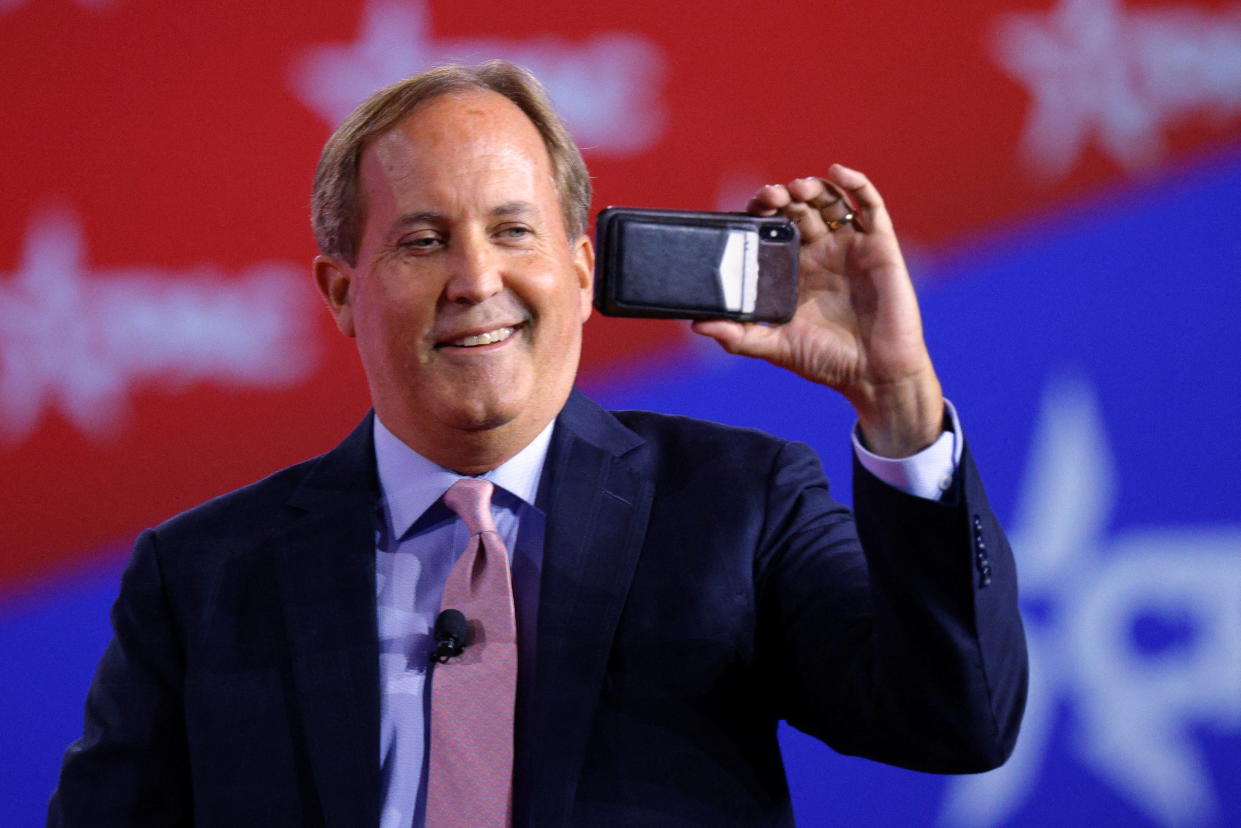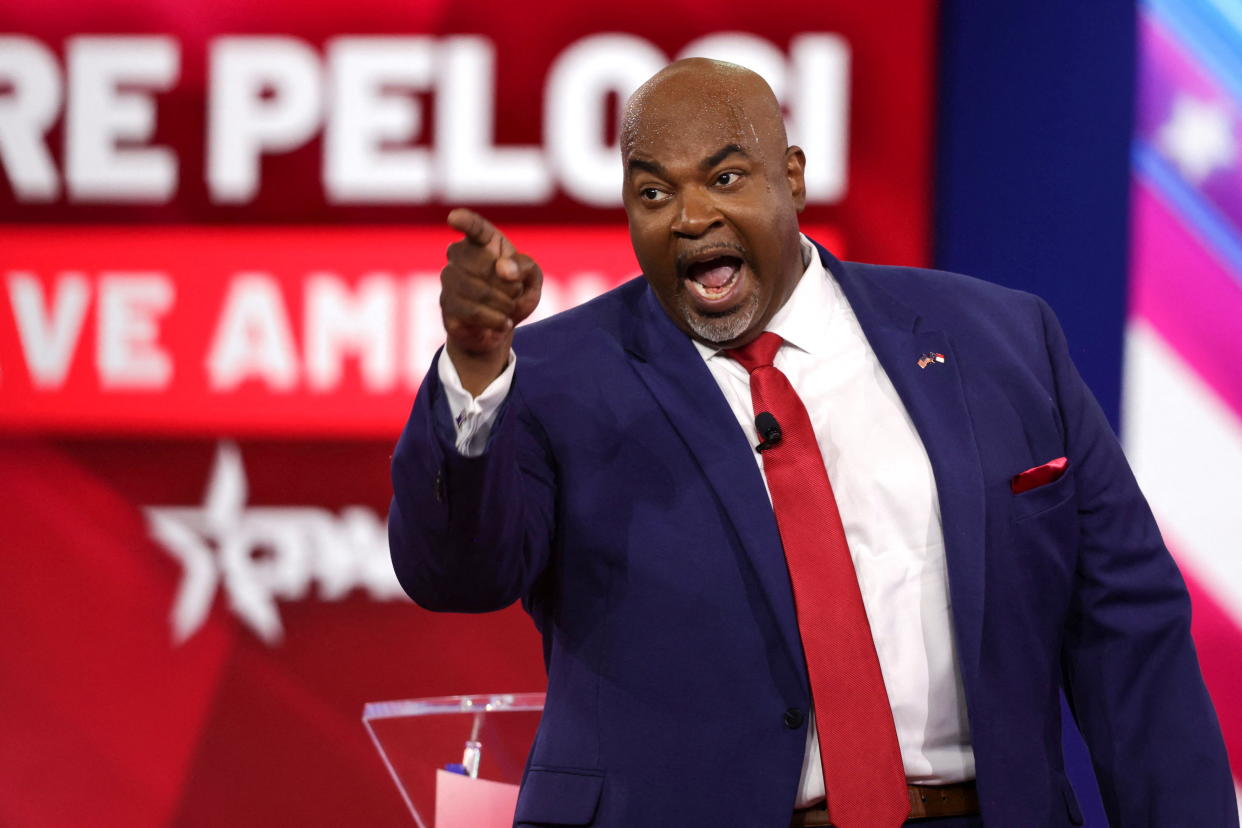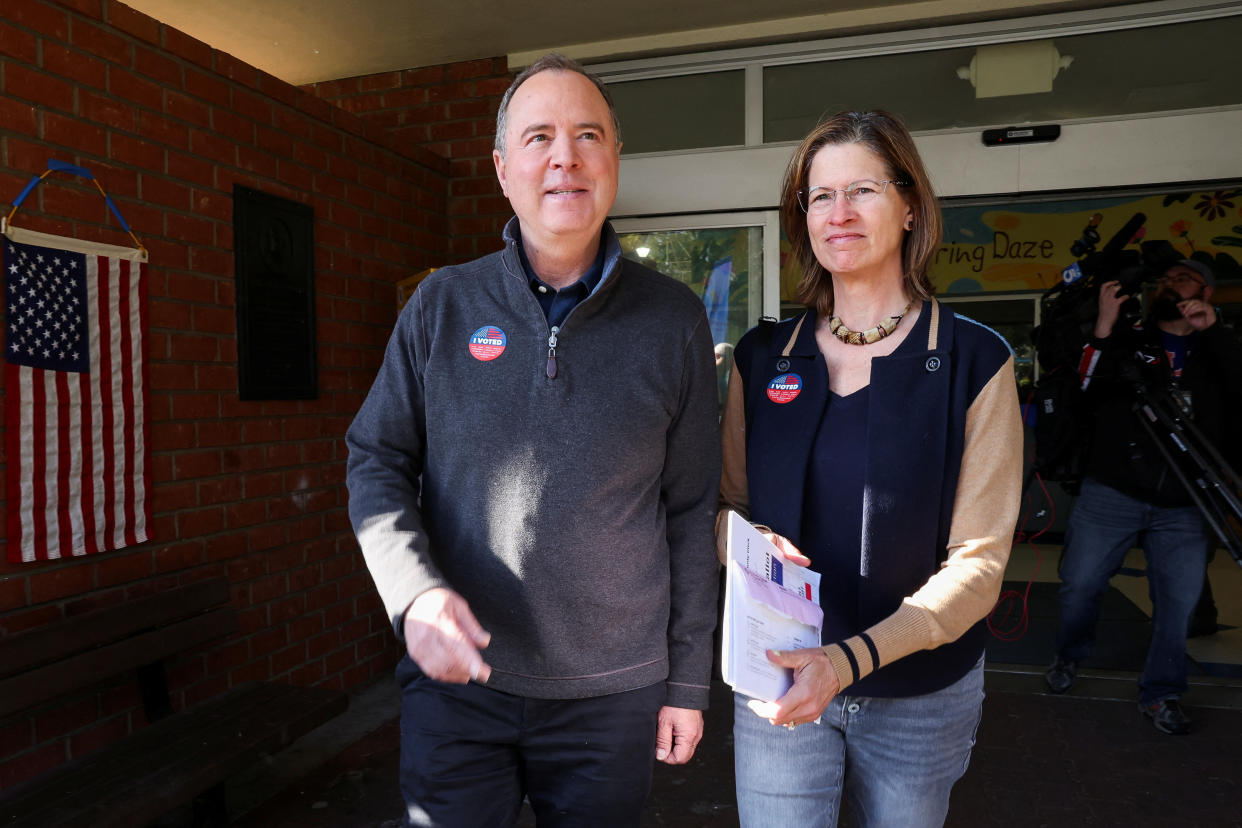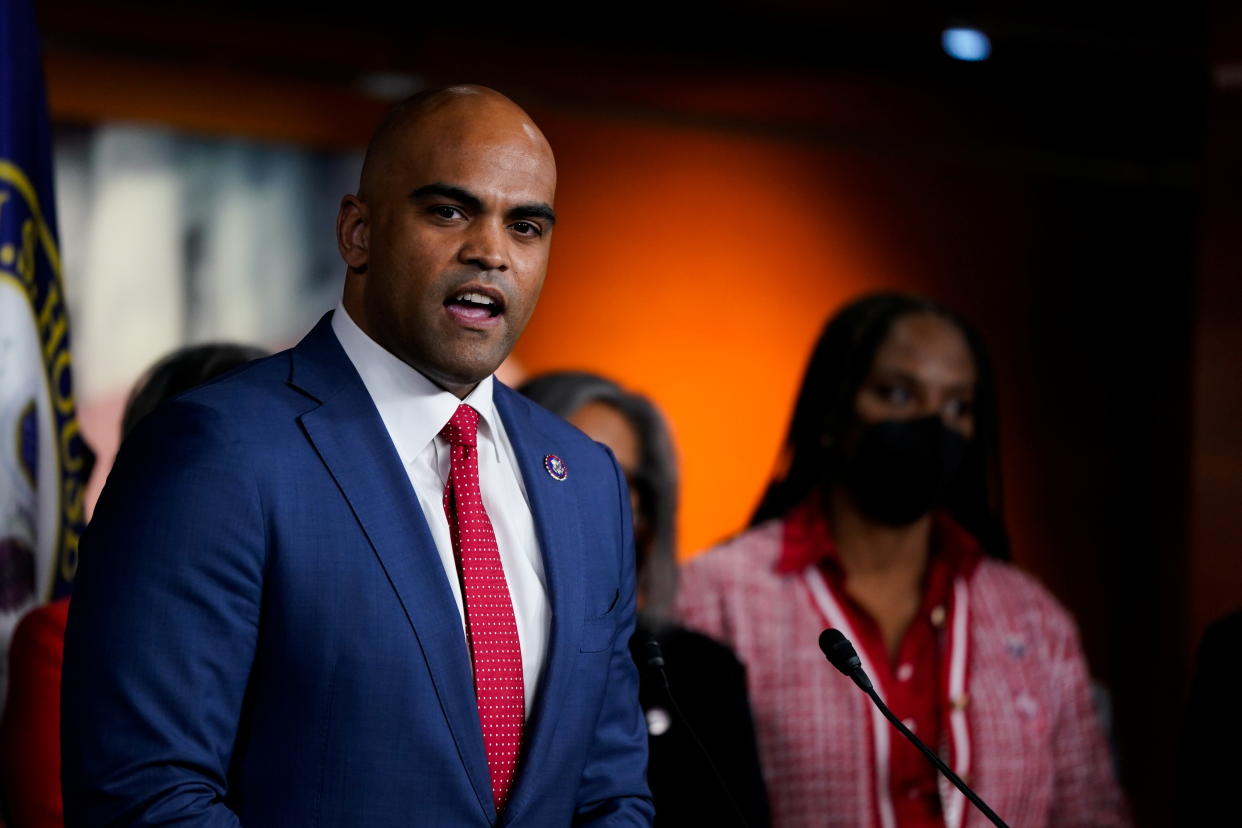The big election news this week that didn’t involve Trump or Biden

There was far more to Super Tuesday than two sleepy presidential primary contests.
In Texas, a political civil war inside the Republican Party played out in primary elections for the state Legislature.
In North Carolina, the Republican Party nominated a self-proclaimed conspiracy theorist for governor, who other Republicans called “unelectable” in the fall election. Multiple seats for Congress in North Carolina were decided Tuesday night, since — as in many states — many districts have been designed to be automatic wins in the fall election for one party or another.
And in California, one well-known Democratic congressman aiming for the U.S. Senate was trying to eliminate his chief Democratic rival by boosting a Republican former baseball player who had barely campaigned for the seat.

The Texas GOP civil war
Texas Attorney General Ken Paxton was impeached by the Republican-controlled state House in an overwhelming vote last year, after several of his own deputies made accusations of corruption.
But former President Trump rallied his political network to save Paxton from being removed by the Senate. Paxton had aided Trump’s attempts to overturn the 2020 election.
And on Tuesday night, Paxton sought payback against some of the Republicans in the state Legislature who voted to impeach him. Most prominently, the Paxton and pro-Trump Republicans tried to defeat House Speaker Dade Phelan, a conservative Republican who oversaw the impeachment of Paxton.
But now Phelan and challenger David Covey are headed for a runoff, since neither of them won more than 50%.
Karen Brooks Harper wrote for the Texas Tribune:
Texas voters on Tuesday handed more power to the insurgent wing of the Republican Party in an expensive and vengeful primary election, punishing GOP lawmakers, judges and a House speaker who defied hard-right state leaders and their supporters in recent years. The shockwaves rippled up and down the ballot. Most notably, Speaker Dade Phelan, R-Beaumont, was forced into a runoff with a well-funded challenger, David Covey, after being targeted by ultra-conservative donors and activists, who faulted the second-term speaker for declining to stop the impeachment of Attorney General Ken Paxton last May.
It’s the latest chapter in a years-long civil war within the Texas GOP between competing right-wing factions.

North Carolina Republicans roll the dice
North Carolina Lt Gov. Mark Robinson, a Republican, has a long history of far-right commentary, such as when he referred to homosexuality as “filth.”
But on Tuesday, he became the Republican Party’s nominee for governor in North Carolina, with the help of an endorsement from Trump. He’ll face Josh Stein, a Democrat and the state’s attorney general.
Some political observers think this matchup may be a replay of the 2022 gubernatorial race in Pennsylvania between Republican Doug Mastriano and Democrat Josh Shapiro. Shapiro defeated Mastriano handily in a state that was winnable for Republicans, due to Mastriano’s extremist views and statements.
Robinson is “an unelectable candidate in the general election in North Carolina, and he puts a conservative future at risk for everyone, from the courthouse to the White House,” according to Bill Graham, the Republican businessman who lost the primary to Robinson.
Mac McCorkle, a Duke University public policy professor, told the Associated Press:
“People are definitely considering it the most important competitive [gubernatorial] race in 2024.”

Unconventional tactics in California Senate race
Calif. Rep. Adam Schiff became a Democratic star during the Trump presidency as he led the impeachment effort against the Republican president.
In his run for U.S. Senate, Schiff sought to eliminate his top Democratic opponent for the seat, Rep. Katie Porter, by elevating a Republican.
California’s election rules dictate that the primary is open to candidates of all parties but that only two candidates advance to the fall election. So Schiff’s play was to help Republican Steve Garvey, a former star player for the Los Angeles Dodgers, to beat Porter.
Because California almost never elects Republicans to statewide office, Schiff wanted to run against Garvey, not Porter. And so his campaign spent $25 million to frame the race as one between himself and Garvey only, sidelining Porter.
At the Los Angeles Times, Mark Z. Barabak wrote:
By choosing Schiff, a Burbank congressman who was the most moderate of the major Democratic candidates — and thus most Feinstein-like — they rejected the leftward swerve promised by two more liberal alternatives, Reps. Katie Porter of Irvine and Barbara Lee of Oakland.
...Barring an extraordinary set of circumstances, Schiff will be California's next U.S. senator, taking over for the placeholding Laphonza Butler, who was appointed to replace Feinstein after her death in September.

Other races of note
In Alabama, Republicans picked Justice Sarah Stewart to be their nominee to lead the state Supreme Court. Stewart was one of the justices “who ruled couples could pursue lawsuits for the wrongful death of a minor child [if] their frozen embryos were destroyed in a fertility clinic accident,” the Associated Press reported — a ruling that generated national headlines.
Stewart will face Democratic Circuit Judge Greg Griffin in November.
In the Texas Democratic primary to take on GOP Sen. Ted Cruz, Rep. Colin Allred – a former NFL football player — easily won and will advance to the fall election.
Allred attributed his success to his close community ties and bridge-building ability. He proudly touts his endorsements from the AFL-CIO labor union and the pro-business U.S. Chamber of Commerce. More than 70% of bills he’s cosponsored have been bipartisan.
… For his part, Cruz is a different opponent from six years ago when he was widely considered to be unpopular within his own party ranks. He has since amassed greater influence and power within the Senate.
Cruz is now the top Republican on the Senate Commerce Committee and has built relationships across the aisle on a host of issues that may not grab national headlines, from international trade infrastructure to the state’s semiconductor industry. Cruz was ranked the 16th most effective Republican senator during the 2021-2023 session by the Center for Effective Lawmaking at Vanderbilt University and the University of Virginia.
Cruz is increasingly highlighting that side of his work to counter Allred’s self-characterization as a bipartisan lawmaker.
Rep. Tony Gonzalez, a Texas Republican who has been targeted by hardline Republicans, came in just under the 50% needed to avoid a runoff.
And Rep. Sheila Jackson-Lee, a Texas Democrat who was challenged by former intern Amanda Edwards, won reelection.


